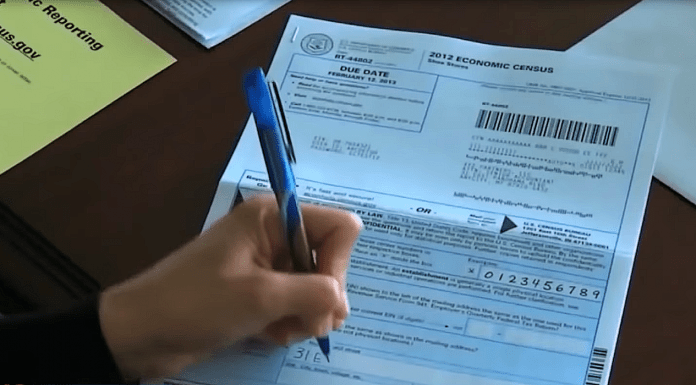(Headline USA) The federal government is taking preliminary steps toward revising racial and ethnic classifications that have not been changed in a quarter-century following calls for more accurate categories for how people identify themselves in federal data gathering.
The revisions could open the door to changes long desired by leftist identity-politics advocates on census and survey forms.
Among them are a new category for people of Middle Eastern and North African descent and efforts to make categories less confusing for Hispanic participants. All are currently classified as white, although the census tallies Hispanic origins on a separate survey.
The chief statistician of the U.S. said in a blog post Wednesday that her office was initiating a formal review of the race and ethnicity classifications maintained by the Office of Management and Budget which were first outlined in 1977 and have not been revised since 1997.
The purpose of any changes to the standards will be to better reflect the diversity of the U.S., said Karin Orvis, the chief statistician, who was named to the position by the Biden administration earlier this year.
The review will wrap up by summer 2024 after getting input from government experts across agencies and public feedback, according to the chief statistician.
That date would be months before a presidential election that could lead to a stop to any revisions if there’s a change in administrations.
Momentum for changing the classifications grew during the Obama administrations, but it was halted after then-President Donald Trump took office in 2017, prior to 2020’s decennial U.S. Census.
“I understand the importance of moving quickly and with purpose,” Orvis said. “It is also important that we get this right.”
Besides helping to provide a portrait of the demographic makeup of the U.S., the categories are used to enforce federal civil-rights regulations and employment discrimination laws.
Under current classifications, race and Hispanic origin are separate categories on census forms and surveys.
Activists have been pushing for combining the race and Hispanic origin questions, saying the way race is categorized often confuses Hispanic respondents who are not sure how to answer.
Tests by the Census Bureau in the 2010 census showed that combining the questions yielded higher response rates.
In 2020 census results, the “some other race” category surpassed African Americans as the nation’s second-largest racial group.
The “some other race” category was made up overwhelmingly of Latinos, claimed Arturo Vargas, executive director of leftist NALEO Educational Fund.
“Right now, the Census Bureau knows the way it collects data is fundamentally flawed. It’s confusing and distorts the true nature of our nation’s diversity,” Vargas said. “For the Latino population, the current construct is flawed when it comes to Latinos being able to identify themselves as Latino and by the race category.”
Advocates also have been pushing for a category of Middle Eastern and North African, also known as MENA, for the once-a-decade census and other federal demographic surveys.
The Census Bureau recommended adding a MENA category to the 2020 census form, but the idea was dropped by the Trump administration.
Several radical leftists in the House of Representatives equated the lack of a MENA category to “the longstanding erasure of a group of our fellow Americans” in a letter this week to Office of Management and Budget Director Shalanda Young and Census Bureau Director Robert Santos.
“OMB standards determine how our political institutions distribute material resources, political representation, and research funding,” said the letter from 18 House Democrats, including Rep. Rashida Tlaib, D-Mich., the lone Palestinian American in Congress.
“These resources are vital components of growth and development for any minority community, particularly those who experience historical barriers to meeting basic needs and accessing support,” the letter added.
Meanwhile, Asian communities also have been calling for more nuanced details. Grouping Asians together in a single race category masks wide variations among different Asian groups, according to activists.
“Aggregated data points in health, education and other issues perpetuate the persistent and pernicious myth that all Asian Americans are affluent and well-educated—by not allowing for a deeper dive into the differences within subgroups,” said Terry Ao Minnis, an official at Asian Americans Advancing Justice ‘ AAJC.
For many identity-politics groups, updating the categories has been a priority for years.
“We have been calling for urgency on this matter,” Vargas said. “We are heartened that we are seeing some movement.”
Adapted from reporting by the Associated Press

